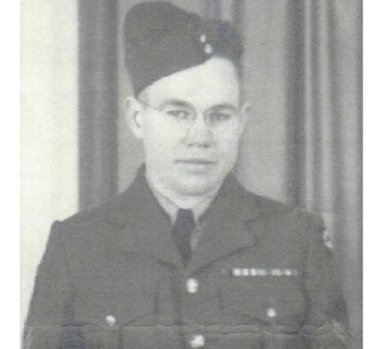In the midst of the pandemic, unbeknownst to us, we lost Dr. Fred Hunt at the age of 97. Former curator, Maya Hirschman, had two opportunities to interview Fred in 2013 and 2014 and she remembers those interviews as poignant and profound, altering her understanding of radar mechanics’ roles as he described his work in mobile radar on the front lines. She remembers him as a quiet, kind, and intelligent man, whose experiences in France, Belgium, and the Netherlands left their mark without ever undermining his deep compassion for his peers and civilians alike. Maya and all of us at SORM offer our sincere condolences to Fred’s family and friends. We know he’ll be missed.
Below is an excerpt from his Obituary (link here):
HUNT, Frederick
(Normandy Veteran - French Legion of Honour)Passed away peacefully in Ottawa on July 10, 2021 at the age of 97 years. Frederick Hunt, loving husband of the late Alice (née Emond). Born on October 6, 1923 in Port Hope, Ontario son of the late Roy and Elsie (née Jewell). Predeceased by his brothers Jack, Ted and Reese of Port Hope, ON. Predeceased also by his sister-in-law Carol of Baltimore, On. Fondly remembered by his niece and 5 nephews. Frederick spent many dedicated years as a RCAF/RAF radar technician from 1941-1946. He later studied and received his BSc, MSc., and PhD from the university of Western Ontario in the years 1947-1955. After university, he spent 31 years with the National Research Council involving Research and Development of radar and its applications.
